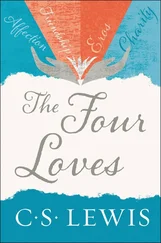This third thing is not a sentiment but a belief: a firm, even prosaic belief that our own nation, in sober fact, has long been, and still is markedly superior to all others. I once ventured to say to an old clergyman who was voicing this sort of patriotism, "But, sir, aren't we told that every people thinks its own men the bravest and its own women the fairest in the world?" He replied with total gravity—he could not have been graver if he had been saying the Creed at the altar—"Yes, but in England it's true." To be sure, this conviction had not made my friend (God rest his soul) a villain; only an extremely lovable old ass. It can however produce asses that kick and bite. On the lunatic fringe it may shade off into that popular Racialism which Christianity and science equally forbid.
This brings us to the fourth ingredient. If our nation is really so much better than others it may be held to have either the duties or the rights of a superior being towards them. In the Nineteenth Century the English became very conscious of such duties: the "white man's burden". What we called natives were our wards and we their self–appointed guardians. This was not all hypocrisy. We did do them some good. But our habit of talking as if England's motives for acquiring an empire (or any youngster's motives for seeking a job in the I.C.S.) had been mainly altruistic nauseated the world. And yet this showed the sense of superiority working at its best. Some nations who have also felt it have stressed the rights not the duties. To them, some foreigners were so bad that one had the right to exterminate them. Others, fitted only to be hewers of wood and drawers of water to the chosen people, had better be made to get on with their hewing and drawing. Dogs, know your betters! I am far from suggesting that the two attitudes are on the same level. But both are fatal. Both demand that the area in which they operate should grow "wider still and wider". And both have about them this sure mark of evil: only by being terrible do they avoid being comic. If there were no broken treaties with Redskins, no extermination of the Tasmanians, no gas–chambers and no Belsen, no Amritsar, Black and Tans or Apartheid, the pomposity of both would be roaring farce.
Finally we reach the stage where patriotism in its demoniac form unconsciously denies itself. Chesterton picked on two lines from Kipling as the perfect example. It was unfair to Kipling, who knew—wonderfully, for so homeless a man—what the love of home can mean. But the lines, in isolation, can be taken to sum up the thing. They run:
If England was what England seems
'Ow quick we'd drop 'er. But she ain't!
Love never spoke that way. It is like loving your children only "if they're good", your wife only while she keeps her looks, your husband only so long as he is famous and successful. "No man," said one of the Greeks, "loves his city because it is great, but because it is his." A man who really loves his country will love her in her ruin and degeneration—"England, with all thy faults, I love thee still." She will be to him "a poor thing but mine own". He may think her good and great, when she is not, because he loves her; the delusion is up to a point pardonable. But Kipling's soldier reverses it; he loves her because he thinks her good and great—loves her on her merits. She is a fine going concern and it gratifies his pride to be in it. How if she ceased to be such? The answer is plainly given: "'Ow quick we'd drop 'er." When the ship begins to sink he will leave her. Thus that kind of patriotism which sets off with the greatest swagger of drums and banners actually sets off on the road that can lead to Vichy. And this is a phenomenon which will meet us again. When the natural loves become lawless they do not merely do harm to other loves; they themselves cease to be the loves they were—to be loves at all.
Patriotism has then, many faces. Those who would reject it entirely do not seem to have considered what will certainly step—has already begun to step—into its place. For a long time yet, or perhaps forever, nations will live in danger. Rulers must somehow nerve their subjects to defend them or at least to prepare for their defence. Where the sentiment of patriotism has been destroyed this can be done only by presenting every international conflict in a purely ethical light. If people will spend neither sweat nor blood for "their country" they must be made to feel that they are spending them for justice, or civilisation, or humanity. This is a step down, not up. Patriotic sentiment did not of course need to disregard ethics. Good men needed to be convinced that their country's cause was just; but it was still their country's cause, not the cause of justice as such. The difference seems to me important. I may without self–righteousness or hypocrisy think it just to defend my house by force against a burglar; but if I start pretending that I blacked his eye purely on moral grounds—wholly indifferent to the fact that the house in question was mine—I become insufferable. The pretence that when England's cause is just we are on England's side—as some neutral Don Quixote might be—for that reason alone, is equally spurious. And nonsense draws evil after it. If our country's cause is the cause of God, wars must be wars of annihilation. A false transcendence is given to things which are very much of this world.
The glory of the old sentiment was that while it could steel men to the utmost endeavour, it still knew itself to be a sentiment. Wars could be heroic without pretending to be Holy Wars. The hero's death was not confused with the martyr's. And (delightfully) the same sentiment which could be so serious in a rearguard action, could also in peacetime, take itself as lightly as all happy loves often do. It could laugh at itself. Our older patriotic songs cannot be sung without a twinkle in the eye; later ones sound more like hymns. Give me "The British Grenadiers" ( with a tow–row–row–row ) any day rather than "Land of Hope and Glory".
It will be noticed that the sort of love I have been describing, and all its ingredients, can be for something other than a country: for a school, a regiment, a great family, or a class. All the same criticisms will still apply. It can also be felt for bodies that claim more than a natural affection: for a Church or (alas) a party in a Church, or for a religious order. This terrible subject would require a book to itself. Here it will be enough to say that the Heavenly Society is also an earthly society. Our (merely natural) patriotism towards the latter can very easily borrow the transcendent claims of the former and use them to justify the most abominable actions. If ever the book which I am not going to write is written it must be the full confession by Christendom of Christendom's specific contribution to the sum of human cruelty and treachery. Large areas of "the World" will not hear us till we have publicly disowned much of our past. Why should they? We have shouted the name of Christ and enacted the service of Moloch.
It may be thought that I should not end this chapter without a word about our love for animals. But that will fit in better in the next. Whether animals are in fact sub–personal or not, they are never loved as if they were. The fact or the illusion of personality is always present, so that love for them is really an instance of that Affection which is the subject of the following chapter.
I begin with the humblest and most widely diffused of loves, the love in which our experience seems to differ least from that of the animals. Let me add at once that I do not on that account give it a lower value. Nothing in Man is either worse or better for being shared with the beasts. When we blame a man for being "a mere animal", we mean not that he displays animal characteristics (we all do) but that he displays these, and only these, on occasions where the specifically human was demanded. (When we call him "brutal" we usually mean that he commits cruelties impossible to most real brutes; they're not clever enough.)
Читать дальше











